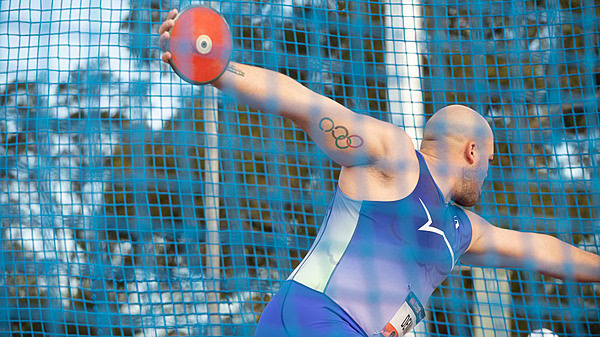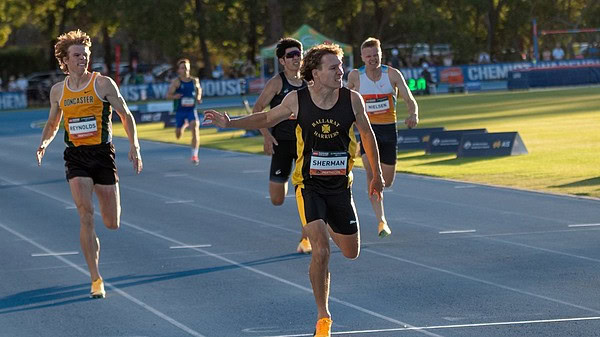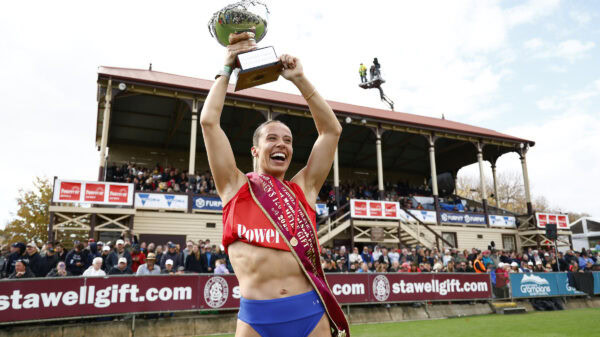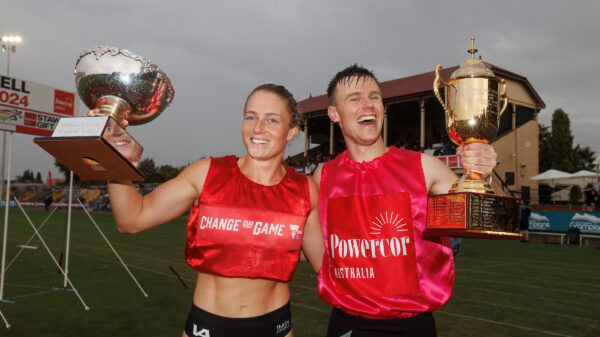Bookmakers have been banned from the 2024 Stawell Gift in a bid by organisers to protect the integrity of the event.
And to comply with the law.
The bookmaker ban implements a prohibition from the Victorian Gambling and Casino Control Commission on betting taking place on individual participants in sporting events who are under 19 years of age. Those regulations set in August last year ‘determined that permitting betting on minors is contrary to the public interest and poses potential integrity and gambling related harm concerns.’

Both the winners of the men’s and women’s Gifts in 2023, Ryan Tarrant (18) and Bella Pasquali (16), were under 19 when they won last year. Five other teenagers have won Gift over the past decade: Holly Dobyn (2014), Grace O’Dwyer (2015), Talia Martin (2016), Liv Ryan (2017) and Matt Rizzo (2017).
There’s some people who aren’t happy about the absence of gambling on the Gift. I want to unpack that a bit, as someone who has run at, worked at, taken photos of and punted (and won) on the Gift, each separately on two or more occasions over the past 20 years. Professionally, I’ve also held integrity based roles in sport for over a decade and was an inaugural member of the state government appointed Victorian Sport Integrity Network. I’m hoping the odds are that you’ll find some value in my perspectives.
I’m going to come at this topic by considering first the nature of sport and the then general integrity risks that the Stawell Gift has.
For me, the starting point is that one of the fundamental things that makes sport beautiful is that there is uncertainty in the outcome. No matter the relative strength of competitors, it’s the result in the arena on the day that determines the outcome.
When that uncertainty is tampered with it undermines not just the integrity of the contest, but of sport. It’s what separates sport from professional wrestling.

As I’ve written previously, the Stawell Gift has an interesting relationship with uncertainty. One one hand, in theory the handicapping process should maximise the uncertainty, by equalising the chance of each athlete to win. In reality we know this isn’t the case, with a fundamental tension: the handicapper tries to produce an even field, but each athlete has a huge incentive to hide their true ability. That’s not to say that all do.
Betting adds another incentive. As a comment on Twitter/X noted: The whole narrative is trying to beat the handicappers and the bookies. That’s not to say that all do.
Often this betting angle has been considered just as an incentive for the winner and/or their stable to win even more from the bookies than the winner might win in prize money from the organisers. You might have noticed that no major bookmakers had books on the 2023 Gift at the heat stage, as a way to mitigate that financial risk to them – wanting to see form from the marks that athletes are assigned, before providing odds. That’s a fundamental indicator of the perceived integrity of the event from those that deal in pricing uncertainty.
When it comes to protecting integrity in sport, its what some might do that is the scenario that needs most attention.
In Victoria there’s also a criminal offence of corrupting a betting outcome associated with a sporting event. While there’s never been convictions related to the Stawell Gift, there have been in tennis and soccer since the legislation was introduced in 2013. Some of the fabled stories of betting plunges at the Gift in years gone by would fall foul of the current legislation.
There’s a very real risk of competition manipulation or match-fixing associated with throwing a performance, particularly in sub-elite sport where betting and broadcast or streaming are involved. The motivations can range from naivety, to greed, to a sinister level of coercion from criminality using it as an avenue for money laundering. 
Of course, those risks can be mitigated to a degree through policy and education: almost every sport in Australia has adopted the National Integrity Framework set by Sport Integrity Australia, or analogous policies. But not the Victorian Athletic League or by extension, the Stawell Gift. Under the nation’s sport integrity framework, at a minimum, it’s a no-go for a competitor in a sport or those connected to them with inside information to bet on events they are involved in. Some sports go further, and ban participants from gambling on their sport at all. There’s a culture that’s been celebrated at Stawell by some which is at complete odds with the rest of Australian sport.
But this ban isn’t about whether competitors and their stable should be able to bet on themselves at Stawell, its about competitors under 19 being bet on. The rationale is that athletes that age – either minors or those who are in their first year of legal adulthood – are more susceptible to influence and the risks involved. So under the VGCCC’s rules you now won’t find a sport now where betting contingencies related to individuals under 19 will be offered. To me, this makes sense generally and is a good piece of public policy. When considered within the specific environment, culture and policy framework that Stawell operates in, it’s a complete no brainer.
There’s some who don’t like a break in tradition. There’s some that believe that the absence of gambling will diminish the viability of the Stawell Gift. There’s some who are arguing it would be best for pro running to limit its events to athletes aged 19 years or older, so that punting can continue.
I disagree with all those views. I think it’s generally good to protect sport and those involved in it from the potential for harm. More so this step presents a broader opportunity for the Stawell Gift. There’s much more that makes the Gift special than gambling, which can be retained and enhanced, while taking the opportunity to do away with an undercurrent celebrated by some: that ‘getting away with beating the system’ is what’s important.
















